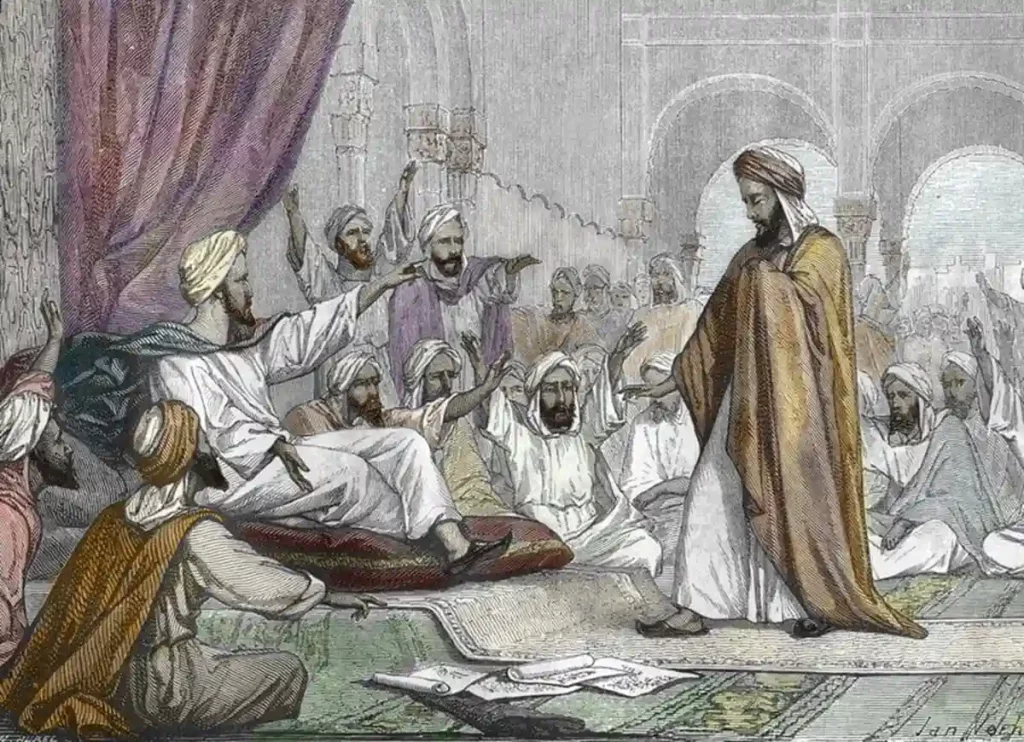Philosophy of Islam – There is a further stark difference that ought to be apparent to everyone: the stark contrast between the glorious times of Islam beginning when the Prophet (PBUH) was the state head in Arabia in the time in the time when Muslims were an entity to be reckoned with, and the present day as Muslims are a threat to the world, and today when Muslim globe is chaos.
This begs the question of what Islam is connected to the pathetic condition we’re in today. I am amazed that no one asks this question because we’ve been taught that Islam is a total lifestyle. This raises the question of what of the following is the reason for our current plight.
The first is that Islam cannot be a mode of life in today’s world. The second reason is that we don’t understand Islam in the same way as the people of just a few centuries ago between and after the time of the Prophet. Perhaps Islam, as we know it, is good enough, and we don’t do sufficient of its teachings?
It is essential to be able to comprehend the philosophies of Islam.
Whichever of these explanations is true is vitally essential to Muslims’ role in the contemporary world.
In the absence of a thought-provoking analysis of the significant questions, I observe the Muslim world pursuing the easy route of living in a world of modernity and tagging Islam to it through the practice of the same rituals without understanding the purpose for which they were designed.
Suggested Read: Sufism | Definition & Sufism History
The issue with this strategy is that Muslims can do every wrong possible thing yet be satisfied in the knowledge that they’re practising Islam and, despite all their mistakes, will be able to go to heaven. This is what I refer to as a balance sheet Islam, and the risk lies in the fact that, as you perform rituals, without even the tiniest idea of the purpose they serve in the end, you will think that you have massive positive benefits that permit you to do any wrong thing. In this case, religion can’t be the positive force it was designed to be.
Let me share my initial ideas on the table to address the question I posed to start a discussion.
What I know about Islam is based on numerous years of rigorous study and two fundamental principles: First, there is an overarching purpose to everything Islam wants us to do or not do. This is connected to two primary outcomes: good human beings and a functioning society. The second is that Islam was created for us for the benefit of human beings and not to benefit Allah. The God we worship, as we consider Him to be, does not require favours from us. Therefore, if religion does not assist me, what’s any reason to spend my time thinking about it?
These two concepts lead me to an understanding and application of Islam, which is in no way similar to what I observe within this Muslim world.
What does this strategy mean for us?
It is important to remember that Islam has two aspects: its philosophy and the larger picture that describes the primary goals, intended outcomes, and operational tools used to attain and achieve these goals.
Responding simply to these questions is possible, but more is needed because there are numerous significant obstacles to overcome when finding real-world guidelines. It is essential to think critically, and various knowledgeable and thoughtful individuals conduct much research.
Similar to what Muslims did in the past, people like, to mention only a handful, Hazrat Umar, Hazrat Ali, Imam Jaffer Sadiq, Imam Abu Hanifa, Imam Ghazali and Abu Ali Sina.
For instance, What is the primary motive behind our thinking about zakat? Is it simply a 2.5 per cent wealth tax? Is it a way to attain the desired amount of income equality? Based on how economic systems have evolved from the past to the present, these two solutions have a massive difference. Therefore, it is essential to learn about the philosophies of Islam.
Also, it is essential to discern between philosophical and operational. What is the difference? Take Namaz as an example. When you look at the ways Islam is practised in Pakistan, It would appear that Namaz is the underlying principle. Does it?
Or is it a practical tool for achieving a philosophy like making people better? I witnessed a massive conflict between practical and philosophical in the case of one guest who arrived more than an hour late and gave the reason that they had waited to make their Maghrib prayers.
I hope that I’ve put some ideas and questions to others to join in serious discussion.
Categories: PRAYER (Salat), ALMS (Zakat), SAWN (Fasting) HAJJ (Pilgrimage) & DUA (Supplications), The Holy Quran, Quran Jaz 1- 114

